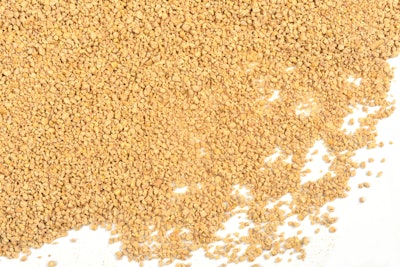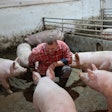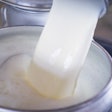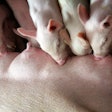
After suspicions were voiced over possible price fixing by feed manufacturers, the Competition Authority of Kenya (CAK) has initiated a wide-ranging investigation.
As well as looking into allegations of price fixing, the CAK inquiry will examine a whole range of aspects in the animal feed market, reports, Business Daily Africa. Among the key areas will be raw material costs and purchases, feed volumes and market prices. Furthermore, the authority will examine market shares by the various milling companies, their ownership, and the existence of any trading or marketing agreements.
On the Kenyan market generally, CAK will also be looking into barriers to entry for smaller producers, as well as seasonal fluctuations in supply and demand.
Import duty waiver aims to lower feed prices
The CAK investigation comes after a prolonged period of high prices for animal feeds in Kenya.
According to a recent report in The Star, the elevated costs are attributed mainly to tight supplies and resulting high prices of key feed ingredients, corn and soybean meal. This has been the situation since the start of the COVID pandemic in 2020, and it is still challenging the country’s poultry farmers to this day. Combined with a simultaneous shortage of day-old chicks, many producers closed their businesses.
In order to ease the situation, the government introduced a duty waiver on imported raw materials for feed manufacture.
With the waiver recently extended until February 2024, it was hoped that the market will begin to stabilize.
According to John Gathogo of the Association of Kenya Feed Manufacturers (AKEFEMA), it may take more time for prices in the country to settle down because global prices of these materials remain relatively high.
Under the extended scheme, the duty waiver covers yellow corn, soybean meals and vitamin premixes, according to the announcement in August.
On some traditional import markets such as Zambia and Uganda, there is no corn available, said Gathogo. In other countries such as Tanzania, only very limited quantities can be exported, he said.
Typical prices on the Kenyan market for a 70-kg bag are KES3,000 (US$20.23) for dairy feed, KES4,500 for layer mash and KES3,500 for poultry grower diet. These prices equate to around US$289, US$433, and US$337, respectively, per metric ton.
Without the duty waiver, Gathogo forecast costs to rise by at least KES500 per bag. However, with the waiver, he said prices were likely to fall soon, particularly if exchange rates become more favorable.
Prospects for recovery in Kenya's dairy, poultry, feed sectors
These changes would help to support former dairy farmers to resume production, according to Gathogo.
For poultry farmers to return to business, he said hatcheries will also need to make more day-old chicks available to growers at a fair price, reported The Star.
In an assessment of the grain and feed market in Kenya this year, the USDA Foreign Agricultural Service (FAS) reported the recent stagnation of the East African nation’s feed market. This it also attributed to insufficient supplies and the high cost of raw materials.
Local sources report that more than 30 of the country’s feed mills have closed since 2021, according to FAS.
In a recent report on the future for the Eastern sub-Saharan Africa region, which includes Kenya, rapid growth in the demand for grain is forecast in the coming decade.















